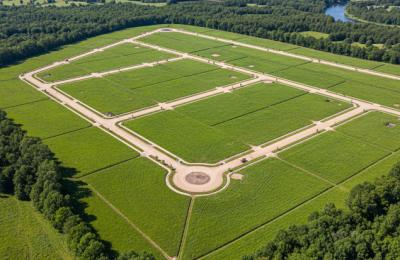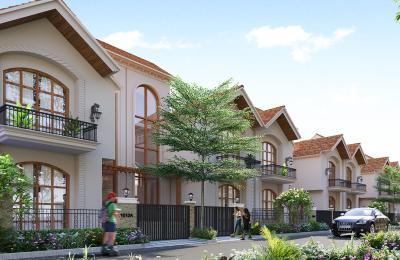Sonipat, Haryana
Government Vision Behind Deen Dayal Jan Awas Yojna Explained
Housing is not just about brick and mortar; it is about providing people with a sense of security, dignity, and belonging. The Government of Haryana recognized this when it launched the Deen Dayal Jan Awas Yojna (DDJAY) in 2016. This scheme is more than just a housing initiative—it is a visionary step to ensure that affordable housing reaches middle-class and lower-income families while simultaneously promoting planned urban development across Haryana.
The scheme introduces Deen Dayal Jan Awas Plots, which empower families to build homes tailored to their needs. With the convenience of Deen Dayal Awas Yojna Haryana Apply online and simple Deen Dayal Awas Yojna eligibility, the program has created a structured path for homeownership that balances affordability, transparency, and inclusivity.
In this detailed guide, we’ll explore the government’s vision behind Deen Dayal Jan Awas Yojna, its core objectives, benefits, eligibility requirements, and how it is reshaping Haryana’s housing landscape.
Why the Government Launched Deen Dayal Jan Awas Yojna
1. To Provide Affordable Housing
The core vision was to make housing accessible to middle-income groups (MIGs) and lower-income groups (LIGs) who found it impossible to buy land in rapidly urbanizing cities.
2. To Encourage Planned Development
By introducing Deen Dayal Jan Awas Plots, the government aimed to eliminate unauthorized colonies and replace them with well-planned neighborhoods.
3. To Balance Regional Growth
Most development was concentrated in Gurugram and Faridabad. This scheme intended to spread urban growth across smaller towns like Sonipat, Panipat, Rohtak, and Rewari.
4. To Empower Homebuyers
Instead of offering ready-made flats, the scheme offers Deen Dayal Plots where families can design and construct homes as per their preferences.
5. To Promote Transparency
The application and allotment process is online and transparent, ensuring equal opportunity for all applicants.
The Visionary Goals of Deen Dayal Jan Awas Yojna
The government’s vision revolves around three pillars:
Affordability – Making plots cost-effective for genuine end-users.
Accessibility – Simple procedures like Deen Dayal Awas Yojna Haryana Apply online to encourage participation.
Accountability – Ensuring all plots are freehold with clear ownership rights.
Features That Reflect the Government’s Vision
1. Affordable Plot Sizes
Plots range from 60 sq. m to 150 sq. m, perfect for middle-class families.
2. Freehold Ownership
Unlike leasehold models, Deen Dayal Plots provide freehold rights, ensuring long-term security.
3. Transparent Allotment
Allotments are done through a lottery system, reducing favoritism and speculation.
4. Focus on Smaller Towns
The scheme encourages people to invest and settle in Tier-2 and Tier-3 cities of Haryana.
5. Integrated Infrastructure
Plots come with facilities like roads, drainage, water supply, and electricity—a hallmark of government-backed planning.
How Deen Dayal Jan Awas Yojna Supports Middle-Class Aspirations
For years, middle-income families were caught between expensive urban properties and illegal colonies with no infrastructure. The Deen Dayal Jan Awas Yojna eligibility criteria ensures these families get priority. This bridges the affordability gap and provides a safe investment opportunity.
Step-By-Step: Deen Dayal Awas Yojna Haryana Apply Online
The government simplified the application process to increase participation. Here’s how it works:
Visit the DTCP Haryana website.
Register as a user with basic details.
Select a project under the Deen Dayal Jan Awas Yojna scheme.
Fill out the form with personal and financial information.
Upload required documents (Aadhaar, PAN, residence proof, income proof).
Pay the registration fee online.
Wait for allotment through lottery.
Receive an allotment letter if selected.
This process shows the government’s intent to promote digital transparency.
Government’s Long-Term Vision for Urban Haryana
Reducing Unauthorized Colonies: By offering affordable alternatives, illegal colonies will naturally diminish.
Balanced Urbanization: Instead of overburdening Gurugram, towns like Sonipat, Karnal, and Rewari will thrive.
Economic Growth: Affordable housing boosts the real estate, construction, and banking sectors.
Improved Living Standards: Planned colonies improve safety, hygiene, and overall lifestyle.
Inclusive Development: Even lower-income families are given access to housing opportunities.
Sonipat Plots for Sale

Sonipat, Haryana

Sonipat, Haryana
Benefits of Deen Dayal Jan Awas Plots
Low-Cost Investment: Much cheaper than market rates.
Government Security: Legal and safe ownership guaranteed.
Loan Availability: Banks offer easy financing.
Infrastructure Ready: Plots are part of approved townships.
Resale Value: Properties appreciate in value over time.
Deen Dayal Awas Yojna Eligibility
The government set simple yet inclusive criteria:
Must be an Indian citizen.
Minimum 18 years of age.
Priority for first-time property buyers.
Middle and lower-income families are encouraged.
Must follow Haryana building by-laws after allotment.
Impact of Deen Dayal Jan Awas Yojna on Real Estate
The scheme has changed Haryana’s real estate market:
Boosted buyer confidence.
Reduced unauthorized development.
Increased demand for housing in Tier-2 cities.
Promoted transparency in land allotments.
Locations Under Deen Dayal Jan Awas Yojna
Some of the key towns include:
Sonipat
Panipat
Karnal
Rewari
Rohtak
Palwal
Faridabad (low-potential zones)
Gurugram (low-potential zones)
Frequently Asked Questions (FAQs)
Q1. What is Deen Dayal Jan Awas Yojna?
It is a Haryana government scheme that provides affordable residential plots for middle and lower-income families.
Q2. What is the vision behind this scheme?
To ensure affordable housing, planned colonies, and balanced urban growth.
Q3. How can I apply?
You can apply through the Deen Dayal Awas Yojna Haryana Apply online portal on DTCP’s official website.
Q4. What are Deen Dayal Jan Awas Plots?
These are freehold residential plots ranging from 60–150 sq. m offered under the scheme.
Q5. Who is eligible?
Indian citizens above 18 years, especially first-time buyers and middle-income families.
Q6. What facilities are provided?
Roads, electricity, water supply, drainage, and green spaces.
Q7. Are loans available for Deen Dayal Plots?
Yes, most banks offer financing options.
Q8. Is the allotment system fair?
Yes, plots are allotted through a transparent lottery process.
Q9. Can NRIs apply?
Yes, NRIs are eligible under specific conditions.
Q10. What if I don’t win in the draw?
You may reapply in future projects, and the registration fee is refundable.
Q11. Are the plots freehold?
Yes, Deen Dayal Jan Awas Plots come with freehold ownership rights.
Q12. Can I sell my plot?
Yes, but resale conditions may apply to prevent speculation.
Q13. Are projects available in Gurugram?
Yes, but only in low and medium-potential zones.
Q14. Can I construct multiple floors?
Yes, subject to Haryana building regulations.
Q15. Why is this scheme important?
It brings affordable housing within reach of the middle class and ensures planned development.
The Government of Haryana’s vision behind Deen Dayal Jan Awas Yojna is crystal clear: to create an ecosystem where every family can own a home, unauthorized colonies are eliminated, and balanced development reaches smaller towns.
Through Deen Dayal Jan Awas Plots, transparent processes like Deen Dayal Awas Yojna Haryana Apply online, and easy-to-understand eligibility rules, the government has reshaped the concept of affordable housing.
This scheme is not just about plots—it’s about empowering families, strengthening communities, and shaping the future of urban Haryana.





